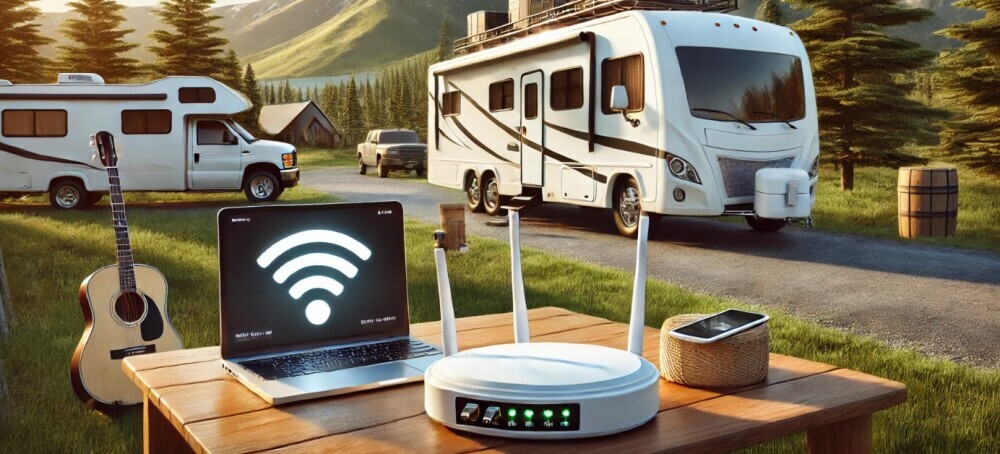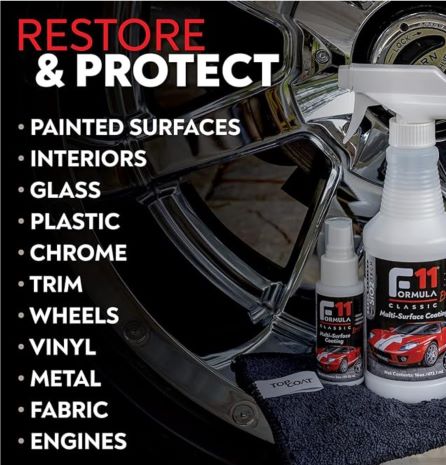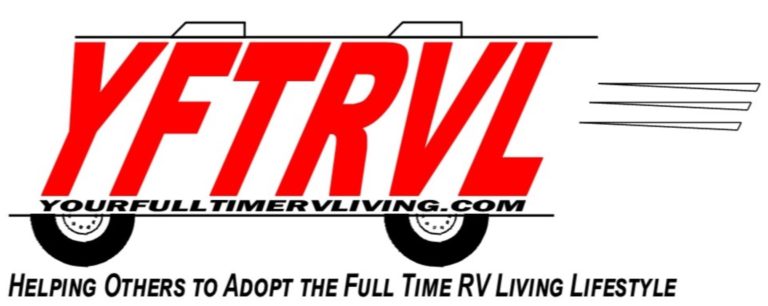Pam and I love RV travel! We have been living the full time RV life since 2008. With over two hundred thousand miles of RV travel, we can tell you that there have been times when we had internet connectivity issues.
So, trust us when we tell you that there are some great ways to stay connected and some less-than-great ways.
Hitting the open road in an RV sounds like the ultimate freedom, right? But let’s get real. These days, staying connected isn’t just a luxury—it’s a necessity. Whether you’re working remotely, streaming your favorite shows, or just checking in on social media, having solid internet access is a must while traveling.
The rise of digital nomads has totally changed the RV scene. With more travelers wanting to explore the world without giving up on creature comforts, RV internet has become a major topic.
I’m talking about everything from staying in touch with loved ones to running a business on the go—all dependent on a reliable internet connection.
There’s a bunch of options out there when it comes to staying online in your RV. From cellular data plans to satellite internet, and even Wi-Fi from your campsite, the choices can be overwhelming. But don’t worry, I’m here to break it down for you, so you can hit the road with confidence and zero connection issues.
Choosing the Right Internet Solution for Your RV Adventures
Picking the right internet option for your RV travels can feel like shopping for a new smartphone—loads of choices but which one is right for you? So, let’s break it down and make it simple.
Cellular data plans are super popular with RVers because of their wide coverage and flexibility. Don’t just pick the first plan you see, though. Compare different providers and look at data limits, speeds, and, of course, the cost.
Some plans even offer unlimited data, but keep an eye on throttling clauses. No one wants to be in the middle of their favorite show and have it buffer every two seconds, right?
Satellite internet sounds like a dream for those off-the-grid adventures. It works anywhere you’ve got a clear view of the sky, making it a lifesaver in remote spots.
Just know that it can be spendy and isn’t always super speedy. Plus, setup isn’t exactly plug-and-play, which means you might have to mess with some techy stuff.
Wi-Fi extenders and signal boosters are like the secret weapons in your connectivity arsenal. They can grab a weak Wi-Fi signal from across your campground and pump it up so you get a decent connection.
If you plan to stick around places with some sort of Wi-Fi, investing in good extenders and boosters can make all the difference.
Setting Up and Maintaining Your RV Internet Connection
Once you’ve figured out the best internet option for your travels, it’s time to set that baby up. Don’t worry; you don’t need a computer science degree for this. Start with a mobile Wi-Fi router. These neat gadgets connect to your cellular network and broadcast a Wi-Fi signal inside your RV, like a mini internet hub on wheels.
Installation is usually pretty straightforward. Plug it in, follow the instructions, and you’re good to go. But to make the most of it, try positioning your router somewhere central in your RV, away from big metal objects that could mess with the signal. Think of it as giving your Wi-Fi router the best seat in the house.
Boosting your speed and staying connected is another story. Keep your router’s firmware updated for optimal performance and security. Also, consider a high-gain antenna to catch signals better. Positioning your RV for an unobstructed view can sometimes enhance connectivity too.
Running into issues is gonna happen sooner or later. No sweat, though. The first step, restart your devices. If that doesn’t work, check for outages with your provider. For persistent issues, look into what’s hogging your bandwidth—sometimes too many apps running in the background can be a sneaky culprit.
Ensuring Security and Privacy on RV Internet Networks
Keeping your data safe on the go can be a bit of a challenge, especially when you’re connecting to public or campground Wi-Fi. Start by password-protecting your network. It’s a simple step, but it adds an important layer of security, keeping unwanted guests from piggybacking on your connection.
Using a VPN (Virtual Private Network) is another solid way to keep your online activities private. VPNs encrypt your internet traffic, making it tough for snoopers to see what you’re up to, whether you’re shopping online or just catching up on your favorite blogs.
Be mindful of data caps that might be lurking in your provider’s plan details. Monitoring your data usage can help avoid unexpected charges. You could use apps to track your usage regularly, so you’re never caught off guard.
Whenever you’re connected to public Wi-Fi, it’s smart to avoid accessing sensitive information, like bank accounts. If you absolutely need to, wait until you’re connected to a secure network or use a VPN. Remember, staying secure often just means being aware and prepared.
Data safety isn’t just about technology; it’s also about behavior. Using strong, unique passwords and changing them regularly helps protect your accounts. And yes, it can be a hassle, but the auto-fill features on your browser can be your best friend here.
To learn more about us, click here.
Please feel free to ask a question or leave a comment before you read other articles on our website.
Pam and I hope that while you enjoy the RV lifestyle, you are also running an online business from your RV! We do!!
With great RV connectivity as outlined here, you can easily make money while traveling to whatever destination you desire.
Would you like to create an income while enjoying RV travel? Is there something that you are passionate about? You can create an online business that you can run anywhere. I can help you do that!










Recent Comments